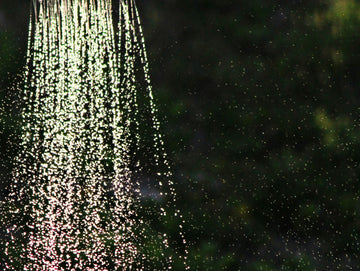Welcome to the essential guide to collecting water for off-grid living. If you have experience living off-grid or are new to camping, it's important to learn how to collect water. This skill is crucial for sustainability and self-sufficiency.
In the following sections, we’ll explore a variety of techniques that cater to different environments and preferences. Discover how to harness nature's power by collecting rainwater, accessing underground sources, and extracting moisture from the air.
Get ready to learn new and useful ways to collect water. These methods will ensure your reservoirs stay full. They will also make your off-grid adventures more successful.
Importance of Water Collection When Living Off-Grid
Living off-grid can lead to a deep appreciation for resources we often overlook, especially water. In places without municipal water services, it is important to know how to collect and store water. This skill is not just helpful, but essential.
Ensuring a Reliable Water Supply
Having access to clean water is crucial for daily life when public utilities are not available. To know how to collect, clean, and conserving water effectively it's important. This is especially crucial for those living off the grid.
In this situation, people should create systems to meet their water needs all year. Planning ahead and ensuring the systems work well is important. This will ensure a steady supply of fresh water. These systems should be reliable and able to provide water all year round.
Individuals must actively ensure they meet their water needs. Creating sustainable water solutions is crucial for maintaining a steady supply of water. Implementing efficient water collection methods can mitigate the unpredictability of natural water sources and ensure a steady supply for drinking, cooking, and hygiene.
Impact on Sustainable Living
Beyond necessity, the practice of collecting water in off-grid settings has a significant impact on sustainable living. Sustainable living aims to minimize environmental footprint, and effective water collection directly supports this goal.
You can collect rainwater and use natural sources to reduce reliance on city systems and lessen the environmental impact. This can help you become more self-sufficient and eco-friendly.
Collecting rainwater and using natural sources can lessen the strain on city systems and lower your environmental footprint. Additionally, water conservation through judicious collection and use aligns with the principles of reducing waste and promoting a symbiotic relationship with the environment.
Methods of Water Collection
Water is crucial for off-grid living. Considering different methods for collecting and using water efficiently is important.
Rainwater Harvesting
Rainwater harvesting is one of the simplest and most effective methods of water collection for off-grid living. To collect rainwater, simply guide it from rooftops and other surfaces into storage containers or tanks. You can do this using gutters and downspouts. Here are key steps and considerations for setting up a rainwater harvesting system:
- Surface Area: Use as large a catchment area as possible, such as roofs.
- Storage: Invest in durable water storage tanks that can hold large volumes and protect water from contamination.
- Filtration: Incorporate filters or purification systems to ensure the water is safe for consumption and other uses.
- Legal Check: Make sure rainwater harvesting is allowed in your area, as some places have rules about collecting and using rainwater.
Collecting rainwater can provide a consistent water source and reduce runoff and soil erosion on your land.
Utilizing Natural Springs
If you’re fortunate enough to live near natural springs, these can be an invaluable water resource for off-grid living. Springs often provide a consistent source of clean water, but it’s important to consider the following:
- Water Rights: Verify your rights to access and use spring water, as local laws may restrict or regulate usage.
- Water Quality: Regularly test spring water for contaminants, particularly if the spring is exposed to agricultural run-off or industrial pollution.
- Infrastructure: Develop a system to channel water from the spring to your home, which may involve pumps and pipes, to utilize this resource effectively.
Utilizing natural springs requires attentiveness to maintain the integrity and purity of the water source.
Implementing Water Catchment Systems
Besides rainwater harvesting, other water catchment systems can be crucial for capturing and storing water in off-grid environments. These systems can include:
- Surface Water Catchments: Creating ponds or dams to capture runoff during rainy seasons.
- Dew Collectors: Installing dew collectors that capture water vapor from the air, useful in cooler or desert climates.
- Fog Nets: In fog-prone areas, large nets can collect water droplets from the fog, which condense and drip into collection vessels.
These methods use the environment to create a reliable water supply for daily needs and off-grid living.
Tools for Efficient Water Collection
Water Pumps
Living off the grid requires you to have a reliable water pump to transport water from its source to where you need it. This pump is essential for accessing water in remote locations. It ensures that water is readily available for daily tasks such as cooking, cleaning, and bathing. Having a dependable water pump is crucial for maintaining a sustainable off-grid lifestyle.
Various types of pumps are available depending on your needs and the source of your water. Solar-powered pumps are great for off-grid living because they don't need traditional electricity to work.
Hand pumps are a simple solution for areas without electricity or as a backup system." These pumps, though manual, are effective for drawing water from wells or underground sources.
Water Storage Tanks
Once you’ve collected water, you need somewhere to store it, and that’s where water storage tanks come in. These items come in different materials such as plastic, fiberglass, or metal, each suitable for various situations and budgets.
When choosing a tank, consider its capacity, durability, and the material’s suitability for potable water. Important to put the tanks in a safe place away from the weather and animals. If you can, put them higher up so gravity can help bring the water to your home without needing a pump."
Filtration Systems
To ensure the water you collect is safe for consumption, installing a filtration system is essential. Various types of water filters are available. Some examples include basic charcoal filters, advanced ceramic filters, UV light systems, and reverse osmosis systems.
The choice of a filtration system will depend on the quality of the water source and the intended use of the water. Also important to regularly maintain these systems to ensure they continue to provide safe and clean water.
Practical Tips for Successful Water Collection Off-Grid
Maintenance of Collection Systems
Maintaining your water collection system is vital to ensure its longevity and functionality. Regularly check all components such as pumps, pipes, and gutters for blockages or leaks.
For water pumps, it's important to check seals and mechanical parts for wear and lubricate them as necessary. Inspect tanks for cracks or algae growth and clean them periodically to prevent contamination.
Filtration systems require regular replacement of filters and cleaning to maintain efficacy. Keeping a routine maintenance schedule will help in detecting and addressing issues before they become serious problems.
Water Conservation Practices
Water conservation is a critical aspect of sustainable off-grid living. Simple practices can significantly reduce water usage and strain on your collection system. Here are a few to consider:
- Use water-saving fixtures like low-flow showerheads and dual-flush toilets.
- Repair leaks promptly to prevent water wastage.
- Utilize greywater systems for watering gardens or flushing toilets.
- Practice rainwater harvesting to maximize your collection capacity.
- Implement watering schedules and techniques like drip irrigation in gardens to minimize evaporation.
Using water wisely helps save energy and ensures there is enough water for everyone.
Dealing with Seasonal Variations in Water Availability
Living off-grid means adjusting to nature's patterns, like changes in water supply throughout the year." In wet seasons, maximize rainwater harvesting by ensuring your collection systems are clean and fully functional. During dry periods, prioritize water storage and ration water usage.
Having a well-mapped plan for water usage during different seasons helps in managing your resources effectively. Having different sources of water, like a well and rainwater collection, can be a good idea. It can help you have a backup and deal with changes in the seasons.
You can manage water resources effectively while living off the grid. You can do this by implementing certain methods and maintaining a responsible approach to water use. Every step you take helps sustain your lifestyle and ensures you have the necessary water for daily living.
Conclusion
To ensure a steady supply of water while living off-grid, it is important to know how to collect it efficiently. It also promotes sustainable living practices. You can choose to collect rainwater, use water pumps, or try out dew collectors and air-to-water systems. Each method has its own advantages and effectiveness.
To successfully collect water, it is important to find a balance between using modern innovations and respecting nature. Safe, clean, and ample water can turn an off-grid life from mere survival to true sustainability.





